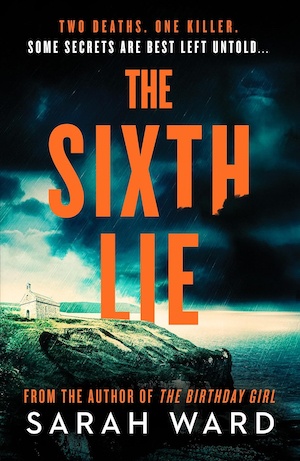I’m not saying that you have to be mentally ill to write poetry. I am saying that almost all the poets I know have some sort of diagnosis, so narrowing down this list was quite difficult. This isn’t an exhaustive list of poems about mental health, but what you’ll find here is a list of books about what it means to be in this world with a brain that’s put together a little differently.
I gave all these books multiple reads while writing my third poetry collection, About Time. At the beginning of 2020, I had a complete manuscript that I was ready to publish, and then some things happened that made the poems feel irrelevant. No idea what those things were though, total mystery. Because I couldn’t tour anymore, my wife Anny had an idea for how to begin doing poetry entirely online: start a writing workshop. So I began my Writing Circle, and that kicked off a new era of creativity for me. Almost all the poems in About Time were written in front of my new poetry friends who lived entirely in my computer, encased in their little end-of-days Zoom boxes.
A theme you’ll find in this list is that mental health issues affect not just the afflicted, but the people close to them as well. Here are 8 poetry collections about mental health:
Black Aperture by Matt Rasmussen
This collection deals with the suicide of the author’s brother. Because of course our mental health doesn’t just affect us. This book has a long poem in parts that serves as an anchor: “Elegy in X Parts.” I dare you, get through it and tell me you don’t like long poems. In the poem “Reverse Suicide,” rags become clean again, the bullet re-enters the gun, leaves spring up onto the trees. Poetry is one of the only places where we are in control of time.
Crush by Richard Siken
If you haven’t read Crush, then you were never hopelessly stuck on Tumblr. This collection is simultaneously weird and accessible, self-celebrating and self-loathing. I’ve never seen another collection better illuminate the specific feeling of hating your circumstances, and wanting to change your circumstances, but not knowing where to begin, and not believing that you’re worthy of anything better. To quote the poet himself: “A man takes his sadness down to the river and throws it in the river / but then he’s still left / with the river. A man takes his sadness and throws it away / but then he’s still left with his hands.”
Do yourself a favor, when you get to the end of the book, set aside 20 minutes where you know you can be alone in a quiet room. Read “You Are Jeff” out loud to yourself. It’s a long poem, and your voice will get tired, but I promise you, it’s a transcendent experience.
Low by Nick Flynn
I could have picked several Nick Flynn books to go here, as many of his poems deal not just with the mental health of the individual, but the way mental disorders are passed down through generations. I decided on Low because I’ve been obsessing over the way the author confronts sadness while trying to live a normal life despite it. Whatever difficulties he’s been through and continues through, he’s still out here having a daughter, thinking too hard about movies, and not noticing a statue he walks by every day until one morning, miraculously, it speaks to him. Nick Flynn has themes across his catalog that reward close reading, so really this is a recommendation to read all his books starting with Some Ether, but whatever you do, get into Nick Flynn.
Not Here by Hieu Minh Nguyen
This book is, I think, ultimately about feeling disconnected. Hieu has this talent for really evoking any space he’s describing, which makes it all the more heartbreaking when he doesn’t feel like he belongs in any of those spaces. Americanness, childhood, queerness, and a bunch of other states of being, when it comes to all of them he feels, apologies, not here. Here’s a quote: “Let me be clear: any love I find will be treason.” So how do you find yourself when you don’t see yourself anywhere?
When My Brother Was an Aztec by Natalie Diaz
This book is about the author’s brother’s struggles with addiction, and the way in which they impact their entire family. Contemporary poets have been revisiting formal poetry and inventing new forms for themselves, and here the author does some incredible things with forms like abecedarians and this crazy sort of sideways pantoum in which the lines rotate on an axis, forming a wild loop that mirrors cycles of addiction.
Short Film Starring My Beloved’s Red Bronco by K. Iver
At the beginning of the book, Missy (the Beloved) is gone, and we’re not entirely sure why. Through memories of adolescence, journeys with gender identity, and a red Ford Bronco, we the readers begin to put together the pieces. As the title implies, this book is full of cinematic moments, but it also does some things with poetry that could never be done on film.
This book explores class, queerness, transness, depression, abuse, and above all love, and often explores those things in a way that highlights the intersectionality of all the labels in your life. No story or moment is just about the author’s queerness or just about Missy’s class, because, of course, no one’s is never just one thing.
Burn Lake by Carrie Fountain
These poems deal with feeling unwelcome in a place that is unwelcoming. Alien in an alien landscape. Most of the book takes place in the author’s hometown of Mesilla, New Mexico, a town in which it is certainly not easy to live. One of my favorite aspects of this book is the inclusion of poems about Spanish conquistador Juan de Oñate’s explorations into the Mesilla Valley, because I love the reminder that no amount of context, historical or otherwise, invalidates your internal state. Your mental illness exists alongside all the pain and suffering around you, and only when you accept and treat the internal can you truly deal with the external.
The Art of Losing: Poems of Grief and Healing edited by Kevin Young
I included this compilation because I think that grief is often a similar experience to depression, with of course the caveat that grief is sometimes a temporary state. Sometimes grief is the closest a neurotypical person can get to understanding what depression really feels like. An excellent poet himself, Kevin Young is also a fantastic editor and compiler of poems, and this collection is a prime example. It’s separated into six sections–Reckoning, Regret, Remembrance, Ritual, Recovery, and Redemption–that provide a new map to grief if one doesn’t feel satisfied with the classic five stages. It contains a balanced mix of classic and contemporary poetry, and I’ve been hoping for a sequel ever since its release in 2010. If anyone knows Kevin Young, please badger him about it for me.








